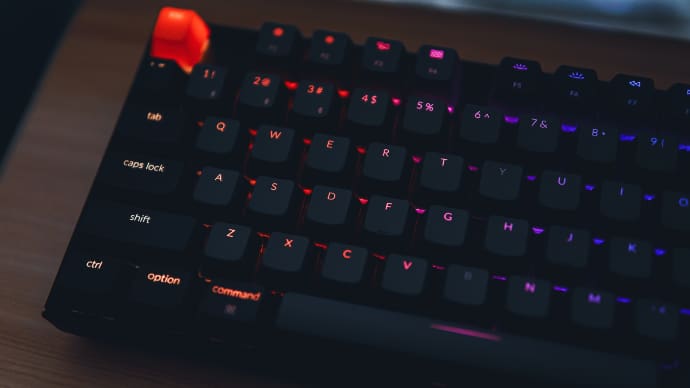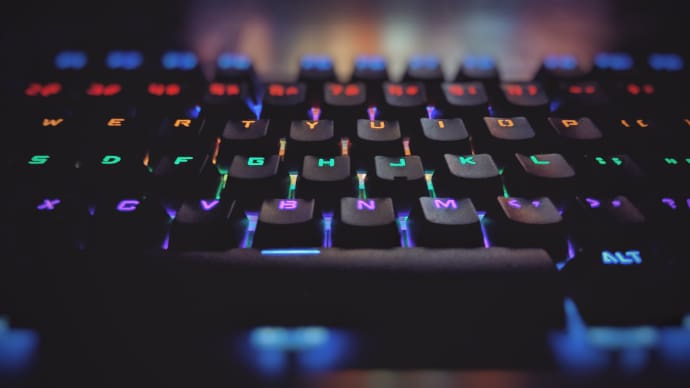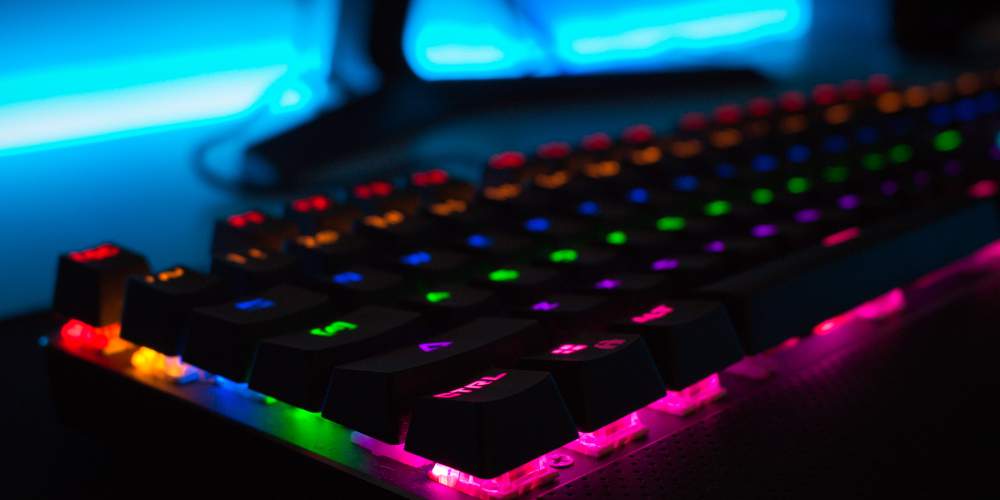Mechanical keyboards have been popular among writers, programmers, and hardcore gamers for years—and that popularity is only growing as more people turn to mechanical keyboards for their desktop workstation setup no matter what they plan on doing.
Which raises a good question: Why? Are mechanical keyboards just a fad? Or do they actually provide practical benefits that make them worth the extra price? Long story short, they're great for all kinds of computer users—especially gamers—but they might not be right for you.
Here's everything you need to know about mechanical keyboards, why they're useful, why gamers love them, and whether they're right for your own needs as a PC gamer and beyond.
What Is a Mechanical Keyboard?

A mechanical keyboard gets its name from the fact that each key is connected to its own individual mechanical switch. (See the next section for an explanation of what a "switch" is.) This is in direct contrast to other keyboard types, which work in one of two ways.
The first alternative is the membrane keyboard, which is what most non-mechanical keyboards for desktop computers are. These have a thin membrane between each key and its electrical contact—when you press a key, the membrane touches the contact and sends a signal.
The second alternative is the scissor switch keyboard (and its cousin, the butterfly switch keyboard). These are similar to membrane keyboards, except they have plastic switches beneath the key caps that activate the contact when pressed down.
Mechanical keyboards are often louder to type on than membrane keyboards. This is frequently blamed on their "clicky" switches, but that's rarely the actual cause. While some switches do have an audible click, the noise is mostly from key caps hitting the keyboard on press.
If you want a quieter mechanical keyboard, you can find O-rings online that will soften the sound as keys bottom out.
Mechanical Keyboard Switches, Explained

One reason why mechanical keyboards are so popular is that they have various "switches" available that can radically change how the keyboard feels to use. Some companies (like Razer) have their own switches, but most mechanical keyboards rely on well-loved switch brands.
Cherry MX switches have long been one of the most popular options, but they're not the only option. That said, they're so popular that the company's color-based naming scheme for its switches has defined how we talk about mechanical keyboard switches overall.
One of the most popular switches for writers, programmers, and other typists is the Cherry MX Blue. This switch clicks when a key is pressed down to a certain depth, providing both tactile and audible feedback when a keypress is registered by the keyboard.
On the opposite end of the spectrum is the Cherry MX Red, which is a popular choice for gamers. This switch has no click at all; instead, you barely have to press the key down for it to register. This is great for gaming (your actions happen ASAP), but not so great for typing.
In between those two is the Cherry MX Brown. This has a smoother actuation point that feels more like the Red, but a softer tactile click that feels like the Blue. If you're looking for a keyboard that can handle both typing and gaming, this switch can be a nice balance.
Of course, there are plenty of other types of switches, but the three options above are the most popular and give a rough idea of why mechanical keyboard fans love them so much.
Mechanical vs. Membrane Keyboards
As great as mechanical keyboards are, there are basically three reasons to prefer a membrane keyboard over a mechanical keyboard.
The first reason is simple: you prefer the feel of a membrane keyboard. The tactile experience of a mechanical keyboard is one of its main draws, but that doesn't mean everyone likes that tactile experience. For some, membrane keyboards are just more comfortable.
The second reason to opt for a membrane keyboard is the price. Mechanical keyboards are more intricately designed because they have more moving parts, meaning they cost significantly more than membrane keyboards—especially once you move beyond entry-level mechanical keyboards and look at those with additional features.
The third reason to prefer a membrane keyboard over a mechanical keyboard is the noise. Even if you opt for click-less switches, the simple act of typing on a mechanical keyboard is still louder than typing on a "normal" keyboard. As mentioned before, you can solve the noise issue using O-rings, but maybe you don't care to take on that DIY project.
Wired vs. Wireless Keyboards
For a long time, it wasn't easy to find wireless mechanical keyboards. Even now, the vast majority of mechanical keyboards available for purchase are wired—but companies have started making wireless mechanical keyboards, and some of them are excellent.
One popular choice is Keychron, a company that makes a wide variety of mechanical keyboards, including wireless models. You can get these with a variety of switches, and I personally have nothing but good things to say about my Keychron K2 with Gateron Brown switches.
For gaming, you may still want to stick with wired mechanical keyboards, like the Razer Huntsman. I have one and, again, have nothing but good things to say about it when gaming.


